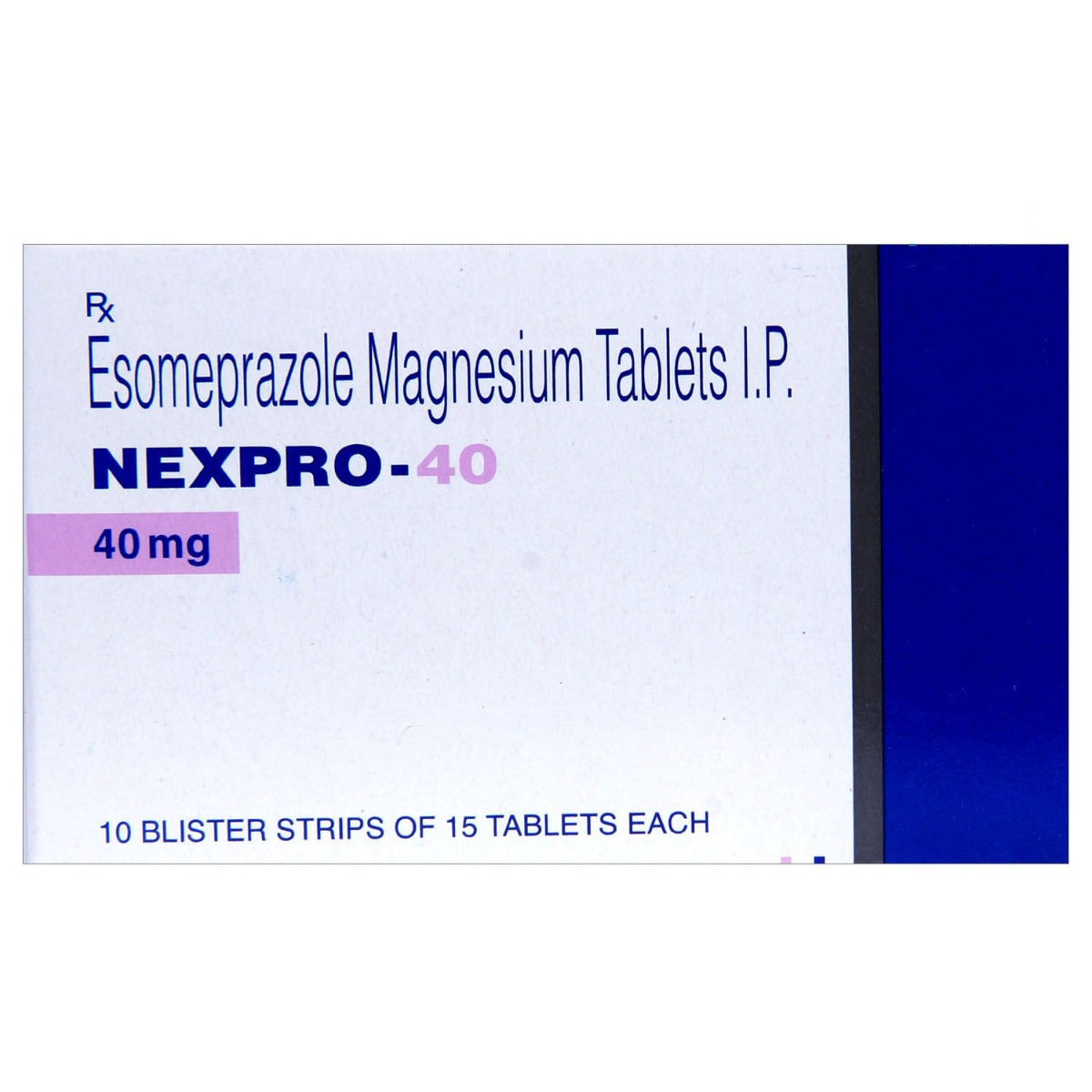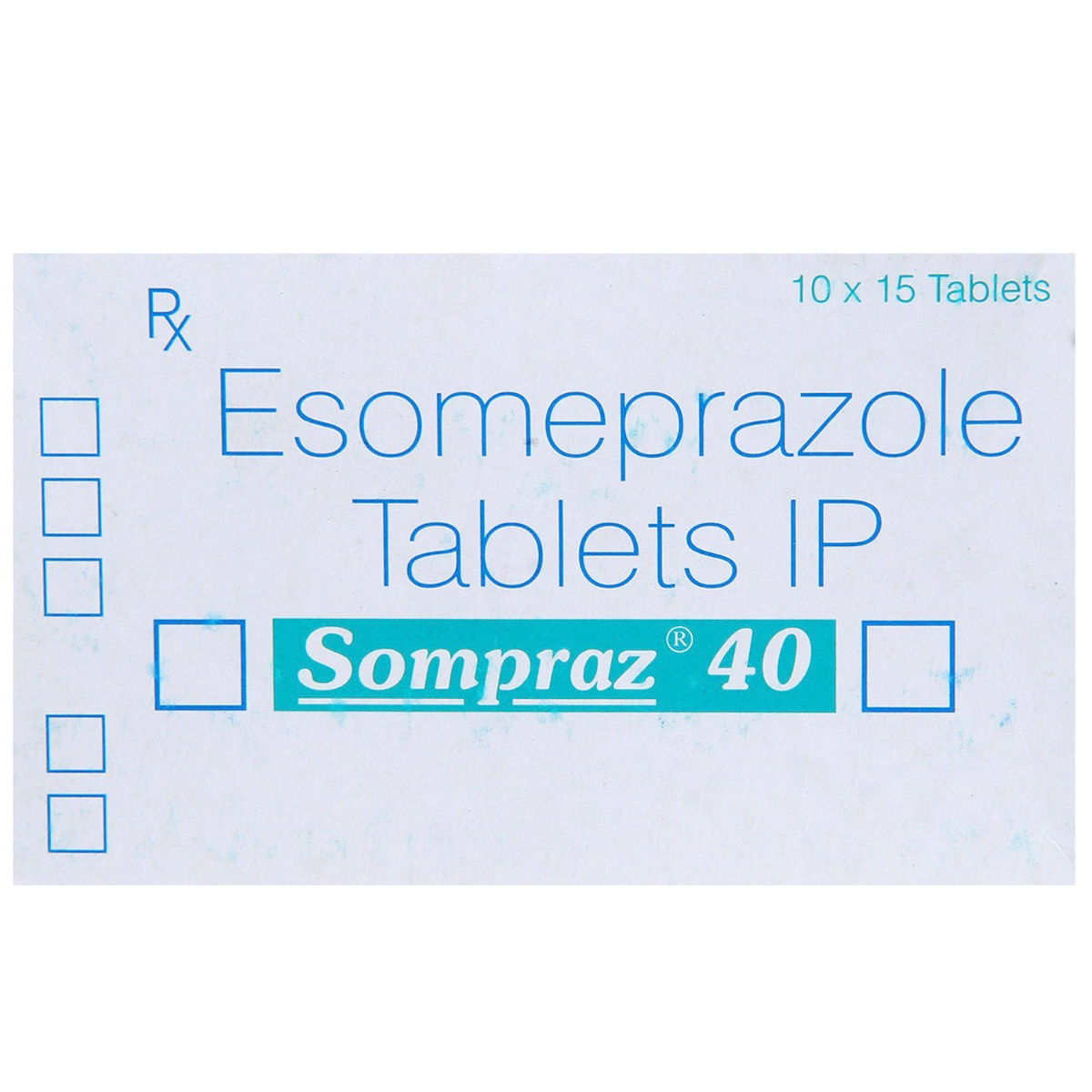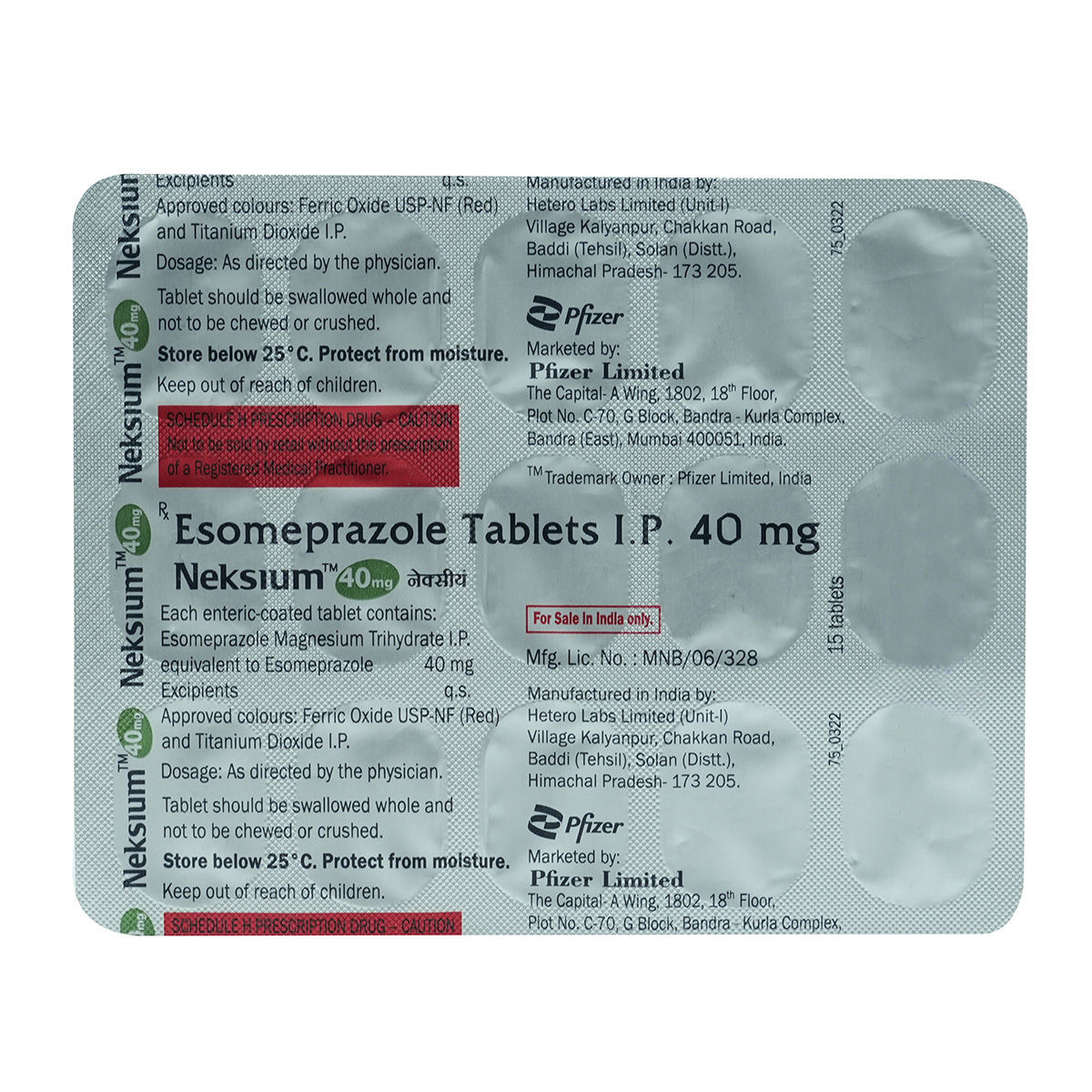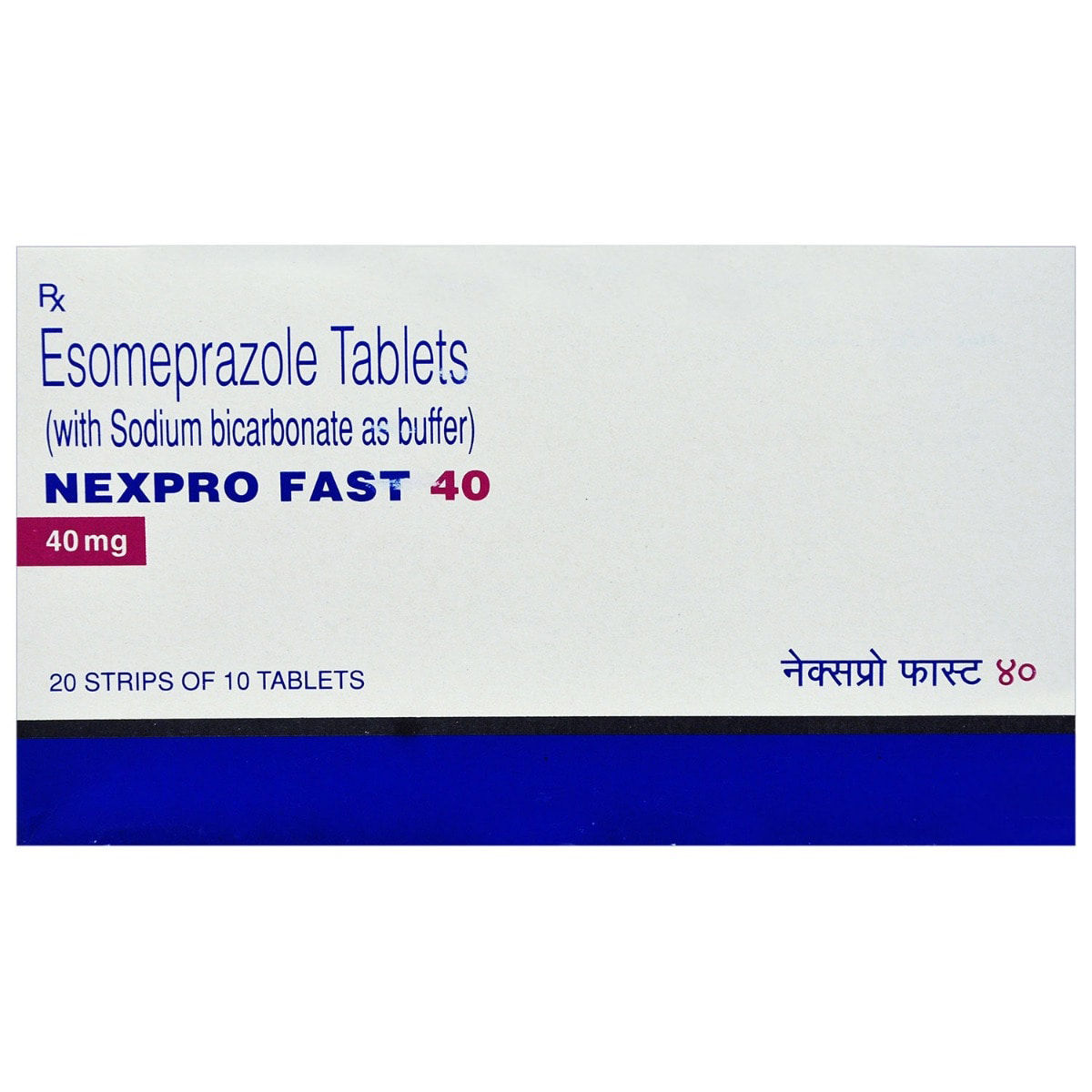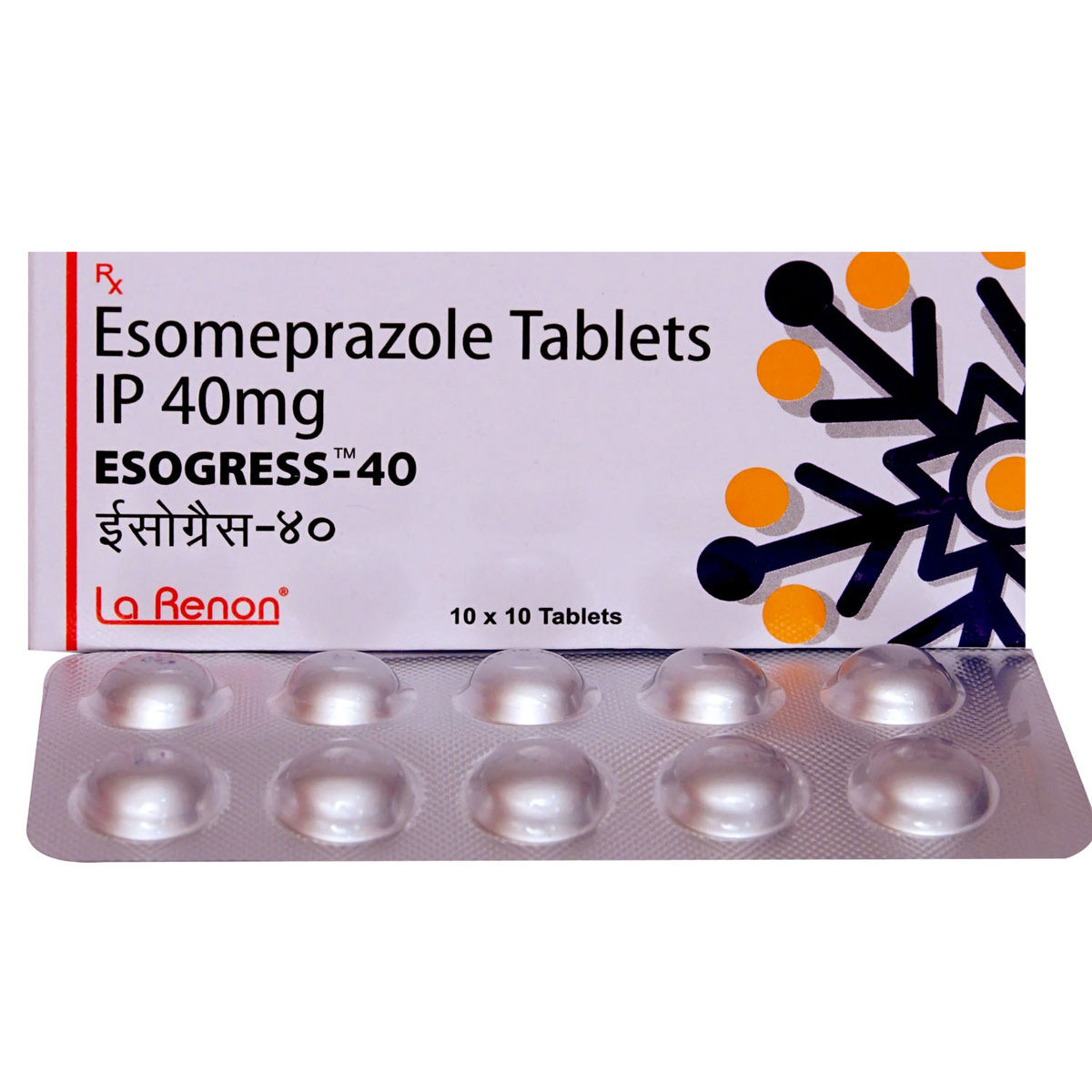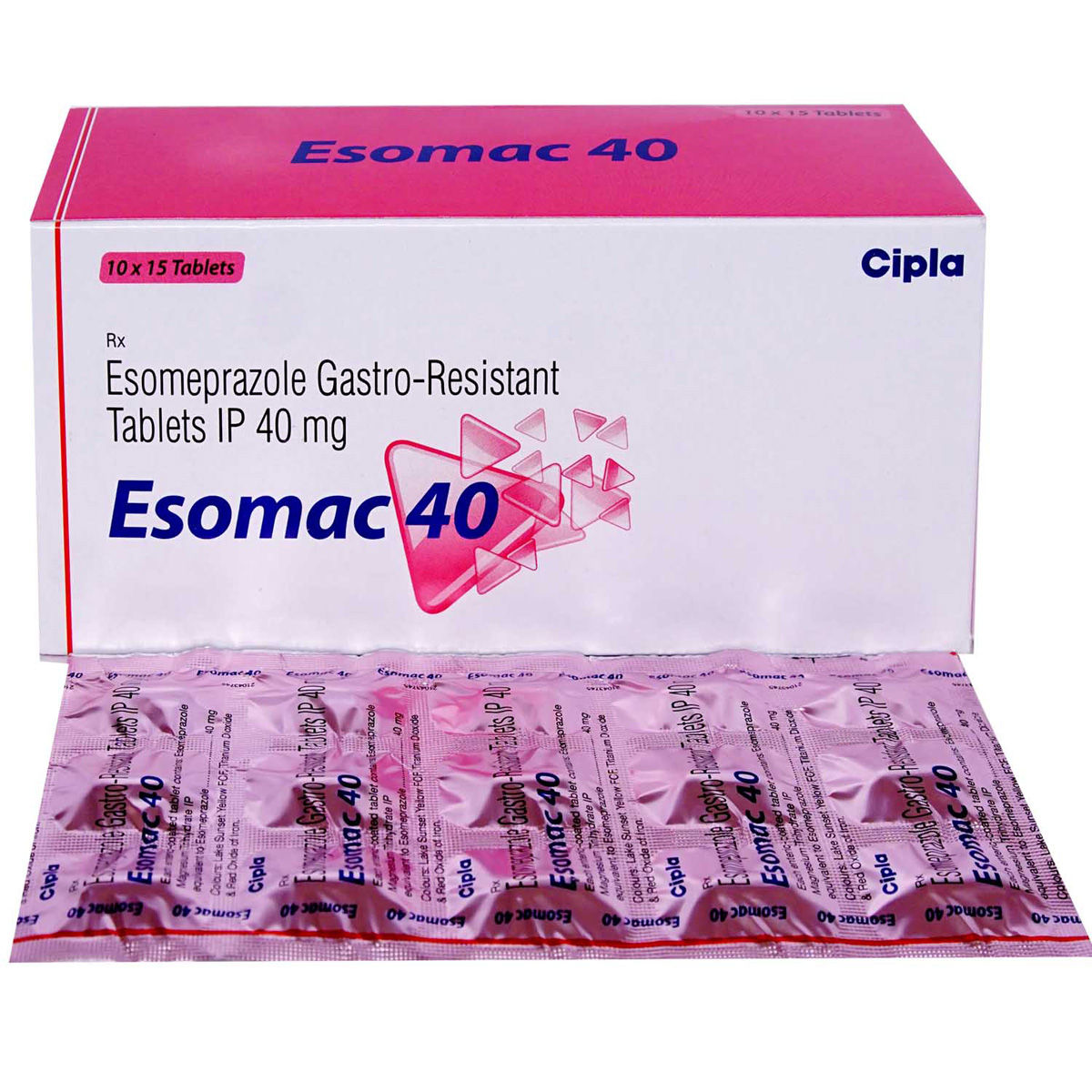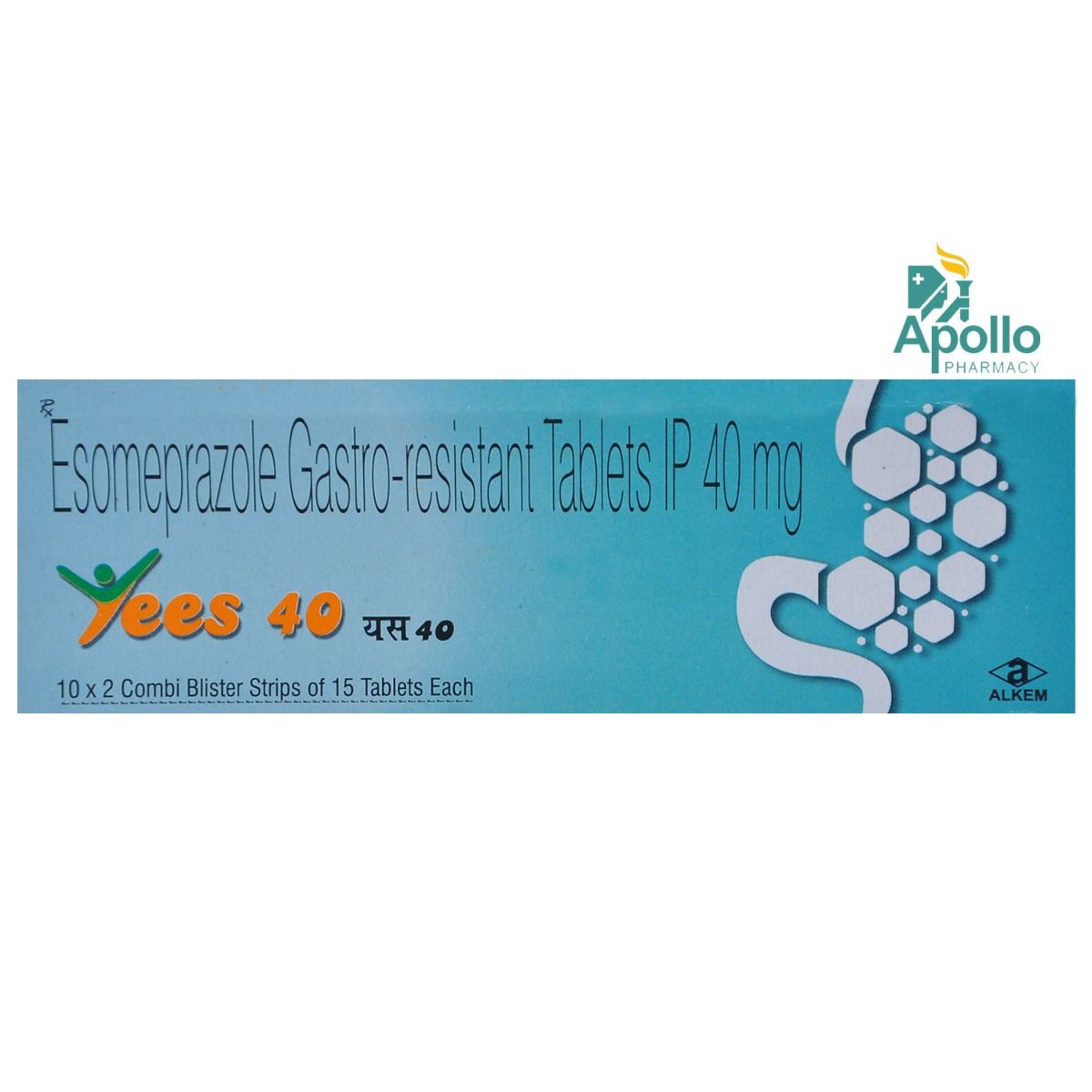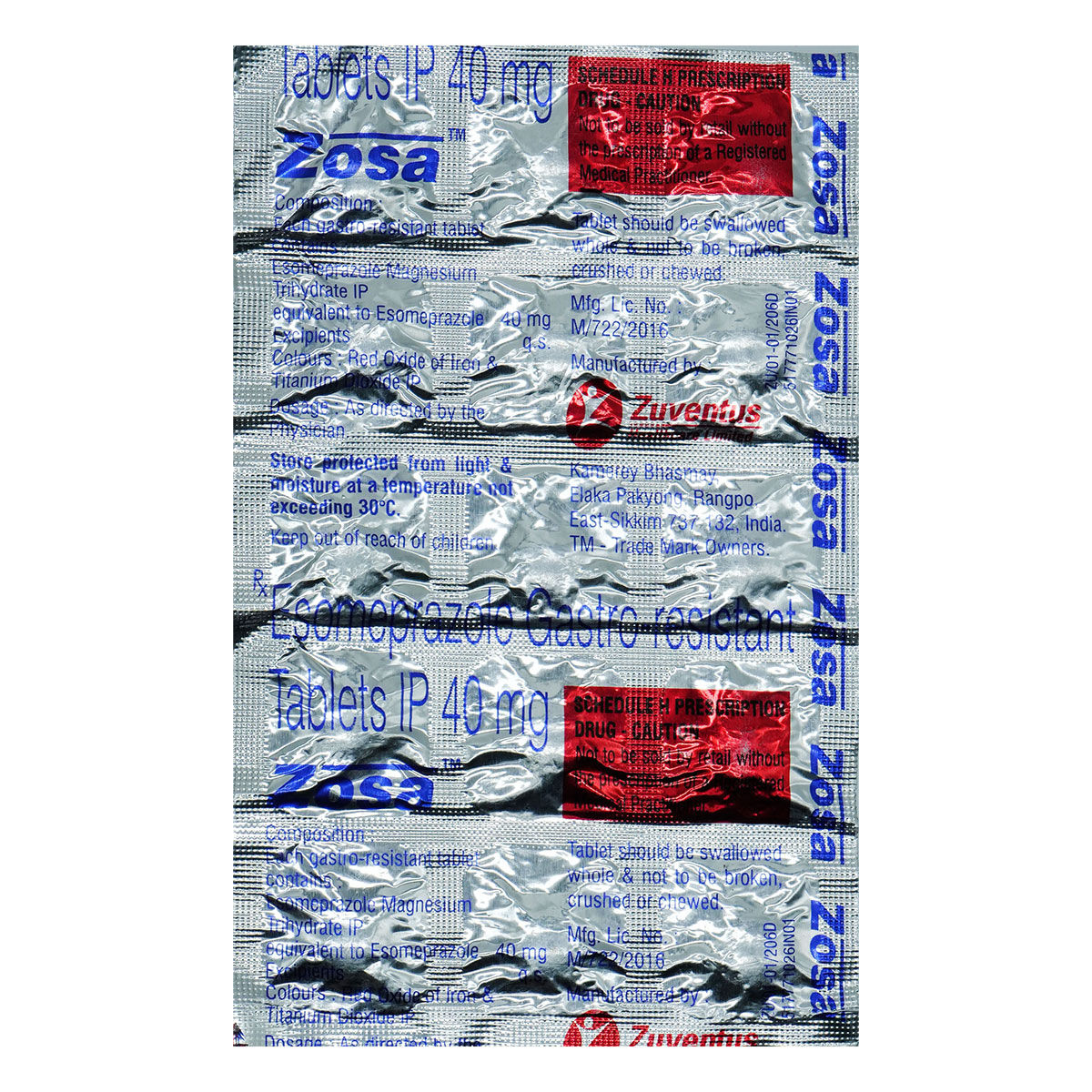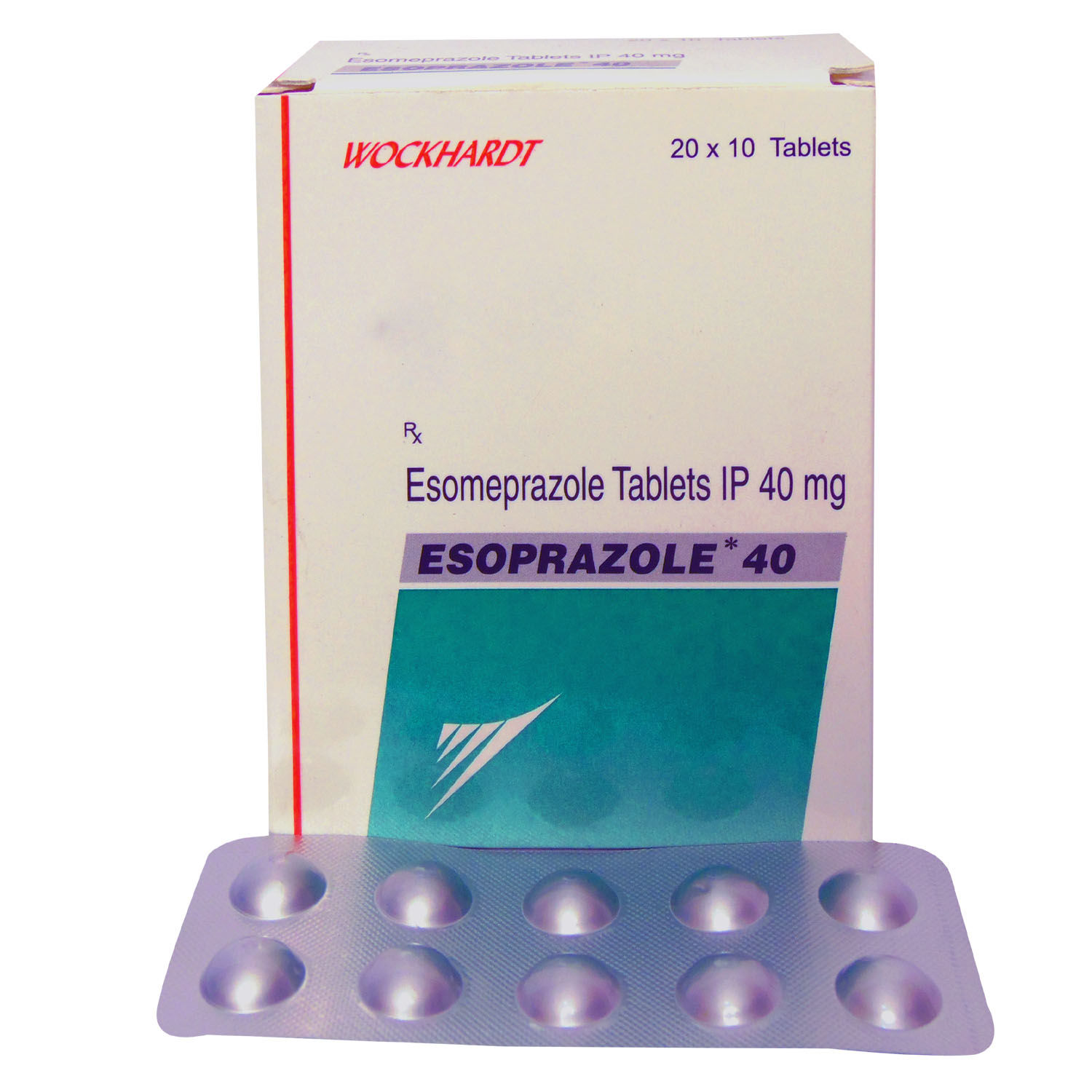Raciper 40 mg Injection 1's
₹86*
MRP ₹95.5
10% off
₹81.5*
MRP ₹95.5
15% CB
₹14 cashback(15%)
Free Delivery
With Circle membership
(Inclusive of all Taxes)
This offer price is valid on orders above ₹800. Apply coupon PHARMA10/PHARMA18 (excluding restricted items)
Provide Delivery Location




Whats That

Secure Payment

India's Most Trusted Pharmacy

Genuine Products
Composition
Consume Type
Return Policy
Expires on or after
About Raciper 40 mg Injection
Raciper 40 mg Injection belongs to the class of drugs known as proton pump inhibitors used for the short-term treatment of gastroesophageal reflux disease (GERD) and stomach ulcers caused by NSAIDs. It also reduces the risk of further ulcer bleeding following an endoscopy in adults. Raciper 40 mg Injection is indicated in adults and children aged 1 month or older who have had damage to their oesophagus and are unable to take esomeprazole by mouth.
Raciper 40 mg Injection contains 'Esomeprazole' that works by reducing the amount of acid made in the stomach. As a result, it relieves symptoms of gastroesophageal reflux disease (GERD) and stomach ulcers.
Raciper 40 mg Injection will be administered by a healthcare professional; do not self-administer. In some cases, Raciper 40 mg Injection may cause headache, diarrhoea, stomach pain, constipation, wind (flatulence), nausea, vomiting, and injection site reactions such as pain, itching, swelling or redness. Most of these side effects do not require medical attention and may resolve with time. However, if they persist or worsen, consult a doctor.
Do not take Raciper 40 mg Injection if you have/had any allergy or hypersensitivity to esomeprazole, any other proton pump inhibitor medications (such as pantoprazole, lansoprazole, rabeprazole, or omeprazole), or any of the other ingredients in Raciper 40 mg Injection. Let your doctor know if you are taking nelfinavir (used to treat HIV infection). Consult your doctor if you are breastfeeding, pregnant, or intend to become pregnant.
Uses of Raciper 40 mg Injection
Medicinal Benefits
Raciper 40 mg Injection contains esomeprazole which belongs to the class of drugs known as proton pump inhibitors used to treat gastroesophageal reflux disease (heartburn) and stomach ulcers caused by the use of NSAIDs (Non-Steroidal Anti-Inflammatory Drugs). It is also used to reduce the risk of further ulcer bleeding following an endoscopy in adults. Raciper 40 mg Injection works by irreversibly blocking the proton pump gate (which secretes stomach acid), thereby reducing stomach acid and treating acidity-related conditions.
Directions for Use
Storage
Side Effects of Raciper 40 mg Injection
- Headache
- Diarrhoea
- Stomach pain
- Constipation
- Wind (flatulence)
- Nausea
- Vomiting
- Injection site reaction
- Benign polyps in the stomach
Drug Warnings
You should avoid taking Raciper 40 mg Injection if you are allergic to any of its components, other proton pump inhibitors or if you are taking certain HIV medications such as nelfinavir. Keep your doctor informed about your health condition and all the medicines you take to rule out any side effects/interactions. Consult your doctor if you are a pregnant woman/nursing mother. Let your doctor know if you have liver/kidney problems or if you are due to undergo Chromogranin A test. Taking Raciper 40 mg Injection for more than a year may modestly raise your risk of hip, wrist, or spine fracture. If you use corticosteroids (which can increase the risk of osteoporosis) or have osteoporosis, tell your doctor.
Drug Interactions
Drug-Drug Interactions: Raciper 40 mg Injection may interact with blood thinner medications (clopidogrel, warfarin), HIV medications (atazanavir, nelfinavir), antifungal medications (ketoconazole, itraconazole), anti-cancer medications (erlotinib, methotrexate), anti-depression medications (citalopram, imipramine), medicines used to treat anxiety (diazepam), drugs used in epilepsy (phenytoin), medications used to treat intermittent claudication (cilostazol), drugs used for indigestion and heartburn (cisapride), medicines used for heart problems (digoxin), immunosuppressant medications (tacrolimus), drugs used for the treatment of tuberculosis (rifampicin), and medicines used to treat depression (St. John’s wort).
Drug-Food Interactions: Avoid or minimise your alcohol consumption. Your stomach produces more acid than usual when you drink alcohol. This can irritate your stomach lining and aggravate your symptoms.
Drug-Disease Interactions: Inform your doctor if you have Clostridium difficile-associated diarrhoea (CDAD), liver disease, osteoporosis, hypomagnesemia or magnesium imbalance.
Drug-Drug Interactions Checker List
- CLOPIDOGREL
- WARFARIN
- ATAZANAVIR
- NELFINAVIR
- KETOCONAZOLE
- ITRACONAZOLE
- ERLOTINIB
- METHOTREXATE
- DIAZEPAM
- CILOSTAZOL
- CISAPRIDE
- DIGOXIN
- CITALOPRAM
- IMIPRAMINE
- PHENYTOIN
- TACROLIMUS
- RIFAMPICIN
- ST JOHN'S WORT
Habit Forming
Diet & Lifestyle Advise
- Avoid intake of acid or heartburn-triggering foods or drinks like onions, peppermint, chocolate, caffeinated beverages, citrus fruits or juices, tomatoes, high-fat and spicy foods.
- Before going to sleep, try to raise your bedhead so that your head and chest are higher than your feet. Do not use piles of pillows. Instead, one raised block is fine. This will not allow the stomach acid to backflow through your food pipe.
- Avoid alcohol and smoking. Alcohol can raise the production of stomach acid leading to heartburn and acid reflux. On the other hand, smoking damages the sphincter, which prevents backflow of the stomach acid back into the food pipe.
- Include high fibre-containing foods, berries, cherries, leafy green vegetables (kale, spinach) and black peppers in your meal. These foods are full of antioxidants, calcium and vitamin B 12 that can help cope with the long-term effects of the medicine.
- Fermented dairy products like miso, sauerkraut, and kimchi contain probiotics which help prevent excess stomach acid production. Cranberry juice can be beneficial for peptic ulcers and H pyroli infection.
- Avoid sitting continuously as it can increase stomach acid production. Take a break of 5 minutes in 1 hour by brisk walking or stretching.
Disease/Condition Glossary
Gastroesophageal reflux disease (GERD): Gastroesophageal reflux disease (GERD) is a condition in which stomach acid flows back into the food pipe (oesophagus). This backflow (acid reflux) irritates the food pipe and causes heartburn. GERD symptoms include chest pain, difficulty swallowing, regurgitation (expulsion of food from the pharynx or oesophagus) of food/sour fluids, and a burning sensation in the chest.
Stomach ulcers: Stomach ulcers are sores (small, shallow wounds) that form on the lining of the stomach as a result of erosion of the stomach's protective coating. Symptoms include nausea, changes in appetite, bloody or dark faeces, unexplained weight loss, vomiting, and indigestion. If the ulcer is not treated, it can cause internal bleeding, peritonitis (inflammation of the abdominal wall), and pyloric stenosis (obstruction of the gastric outlet).
Alcohol
Caution
Drinking alcohol or alcoholic beverages with Raciper 40 mg Injection may cause dehydration and elevate the level of stomach acid thereby decreasing its efficiency. So try to avoid/limit alcohol.
Pregnancy
Caution
Consult a doctor if you are pregnant. Your doctor will weigh the benefits and potential risks before prescribing Raciper 40 mg Injection.
Breast Feeding
Caution
Consult a doctor if you are breastfeeding. Your doctor will weigh the benefits and potential risks before prescribing Raciper 40 mg Injection.
Driving
Caution
In rare cases, Raciper 40 mg Injection may cause dizziness and impaired vision. Do not drive if you experience these symptoms.
Liver
Caution
Raciper 40 mg Injection should be taken with precaution in patients with liver disease. Inform your doctor before receiving Raciper 40 mg Injection if you have had a liver impairment/disorder history. The doctor will prescribe only if the benefits outweigh the risks.
Kidney
Caution
Raciper 40 mg Injection should be taken with precaution in patients with kidney disease. Inform your doctor before receiving Raciper 40 mg Injection if you have had a history of severe kidney impairment/disorder. The doctor will prescribe only if the benefits outweigh the risks.
Children
Safe if prescribed
Raciper 40 mg Injection can be given to children aged 1 month or older under the supervision of a healthcare provider.
Country of origin
Manufacturer/Marketer address
Author Details
We provide you with authentic, trustworthy and relevant information
FAQs
Disclaimer
Customers Also Bought
Product Substitutes





_0.jpg?tr=q-80)










